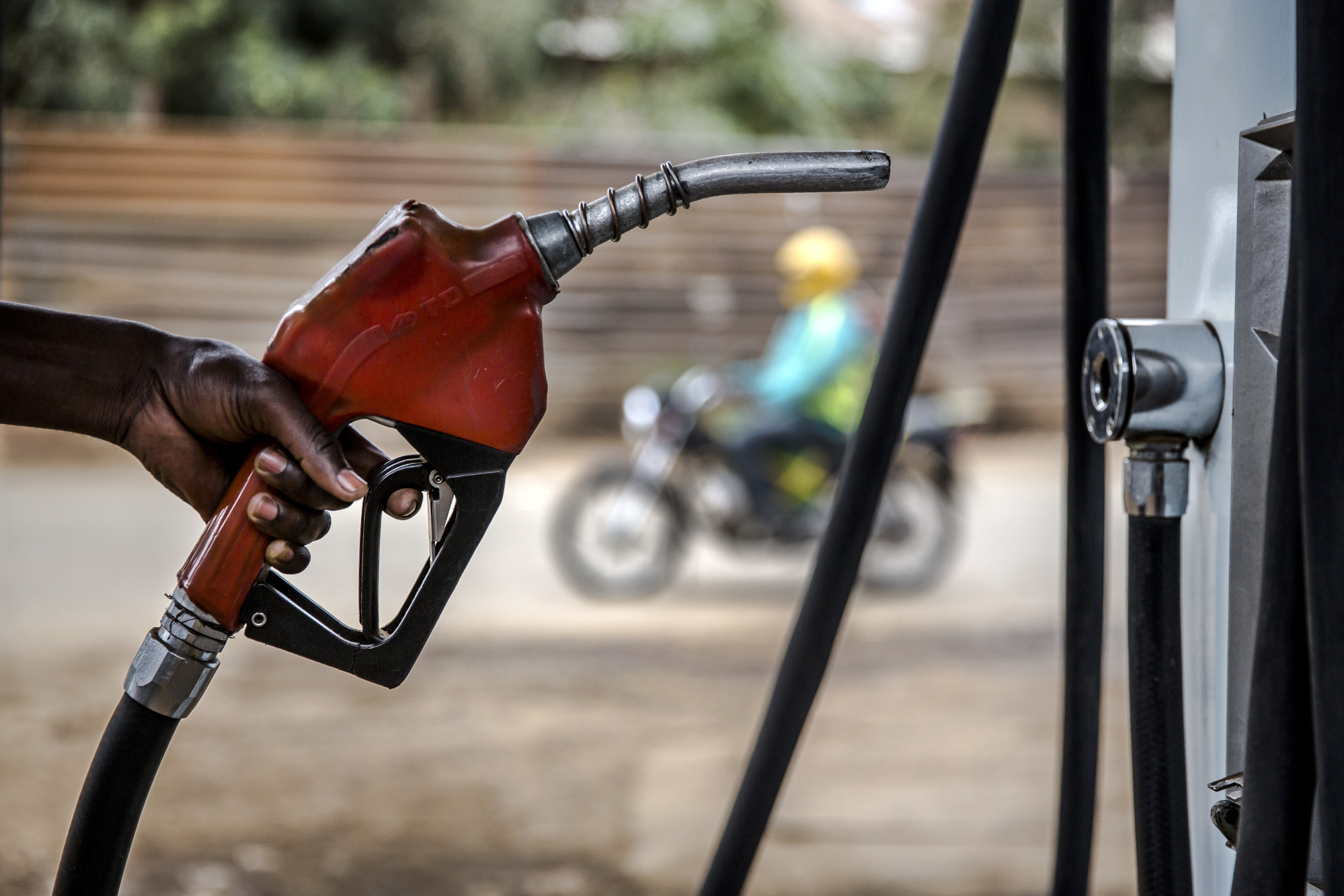Africa
Kenya Said to Plan Compensating Fuel Retailers to Control Prices

Kenya is considering a plan to reimburse fuel retailers after slashing their margins in an attempt to control energy prices despite an increase in crude, according to people with knowledge of the matter.
The compensation mechanism is still being worked out and a final decision is yet to be made, the two people said, asking not to be identified as the proposal isn’t public yet. They didn’t say how much in payment was under consideration.
The Energy and Petroleum Regulatory Authority, which reviews fuel costs monthly, kept prices unchanged at a 31-month high this week even though the landed cost of gasoline increased by 9.3%. Instead, the regulator cut margins by a third to 7.95 shillings ($0.07) per liter of gasoline from the 12.39 shillings that’s usually treated as fixed rate in the pricing formula.
Margins on diesel narrowed to 10.08 shillings a liter from 12.36 shillings, according to information from the regulator, cutting returns for importers, filling-station owners and operators. The authorities told oil marketers to continue doing business as usual pending compensation for the difference, one of the people said.
On the Rise
Kenya’s fuel retail prices are at the highest in more than two years
Energy & Petroleum Regulatory Authority (Kenya)
* Prices for capital, Nairobi
The move came after an anticipated price increase spurred angry reactions from consumers in Kenya and amid mounting inflation risks and the loss of jobs because of the coronavirus pandemic. Pump prices have been the biggest contributor to inflation in East Africa’s biggest economy since July, driven by higher crude prices.
Kenya’s demand for gasoline fell 3% to 1.39 million metric tons last year and that of diesel declined 2.5% to 2.14 million metric tons as virus-containment measures curbed consumption.
Fuel Inflation
EPRA’s acting director-general Daniel Kiptoo and Andrew Kamau, principal secretary at the state department of Petroleum and Mining, didn’t respond to calls and messages seeking comment. The general manager of Rubis Energie SAS’s Kenyan unit and spokesperson of Vivo Energy Kenya Ltd., the nation’s biggest oil marketers, didn’t immediately respond to calls and text messages when separately contacted on Friday.
Kenya started collecting 5 shillings per liter of gasoline for a new price stabilization fund, but the government hasn’t drawn from it yet because the required legal guidelines aren’t in place. Some fuel retailers asked the government to consider a tax reduction to offset the losses instead of eating into their margins, according to one of the people. The regulator is expected to announce the way forward within days, the person said.
Consumers are “outraged by the ping-pong played” by the government, regulator and the companies in a deal that appears to temporarily stabilize the prices, Stephen Mutoro, secretary-general of the Consumers Federation of Kenya, said in a text message. “We have instructed our lawyers to study the new development and advise accordingly,” he said.
Source: Bloomberg.
Kenya Insights allows guest blogging, if you want to be published on Kenya’s most authoritative and accurate blog, have an expose, news TIPS, story angles, human interest stories, drop us an email on [email protected] or via Telegram
-

 Grapevine2 weeks ago
Grapevine2 weeks agoRussian Man’s Secret Sex Recordings Ignite Fury as Questions Mount Over Consent and Easy Pick-Ups in Nairobi
-

 News1 week ago
News1 week agoTHE FIRM IN THE DOCK: How Kaplan and Stratton Became the Most Scrutinised Law Firm in Kenya
-

 Investigations1 week ago
Investigations1 week agoMulti-Million Dollar Fraud: Three Kenyans Face US Extradition in Massive Cybercrime Conspiracy
-

 Economy1 week ago
Economy1 week agoIran Demands Arrest, Prosecution Of Kenya’s Cup of Joe Director Director Over Sh2.6 Billion Tea Fraud
-

 Business1 week ago
Business1 week agoA Farm in Kenya’s Rift Valley Ignites a National Reckoning With Israeli Investment
-

 Africa2 weeks ago
Africa2 weeks agoFBI Investigates Congresswoman Ilhan Omar’s Husband’s Sh3.8 Billion Businesses in Kenya, Somalia and Dubai
-

 Grapevine4 days ago
Grapevine4 days agoA UN Director Based in Nairobi Was Deep in an Intimate Friendship With Epstein — He Even Sent Her a Sex Toy
-

 Politics2 weeks ago
Politics2 weeks agoSifuna, Babu Owino Are Uhuru’s Project, Orengo Is Opportunist, Inconsequential in Kenyan Politics, Miguna Says
















